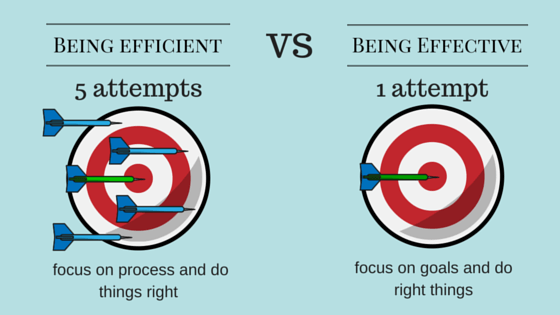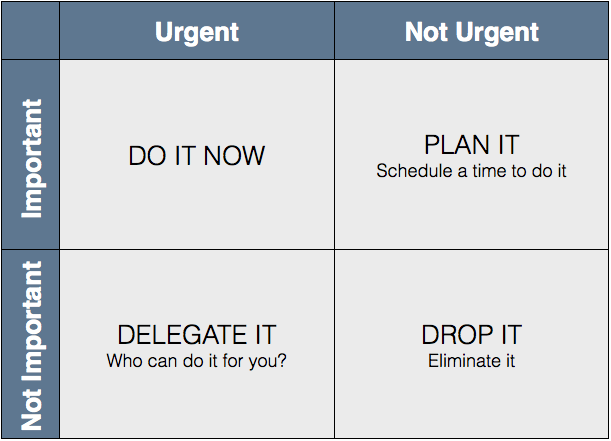This is the ultimate guide to productivity.
I’m going to teach you how to be more productive, with proven time management strategies and productivity hacks that will help you step up, kick-ass, and finally achieve your big goals.
Let me be clear, this is not an article filled with theory or conjecture.
Every tactic in this guide is backed by research and personal experience and will help you increase your productivity and achieve your biggest goals faster than you ever thought possible.
These are the same tactics that took me from broke, stressed out, and suicidal, to running a 7-figure business from the beach and living the life of my dreams.
If you are willing to put in the work, the following 13 productivity hacks will revolutionize the way that you show up at work, at home, and in life.
You will get more done in less time and, more importantly, you will have the internal peace that comes from doing what you say you will do.
So if that sounds like something that interests you, then let’s cut to the chase and dive in.
Enjoy.
What the Hell is Productivity Anyways?
Before we can discuss how to improve your productivity, we must first start by answering a more basic question.
What the hell is productivity in the first place?
The Dictionary defines productivity as:
the effectiveness of productive effort, especially in industry, as measured in terms of the rate of output per unit of input.
To me, this definition is convoluted and trite.
It can make life feel like a never-ending#hustle session and leads to feelings of guilt and dissatisfaction when we take the time to rest and recover even when it’s necessary!
Which, ironically, leads to less real productivity and more time spent (guiltily) watching Netflix in our undies as we shovel Rice Krispy treats into our mouths, wondering why life sucks so much.
I like to define productivity, in simpler terms, as:
The ability to meet or exceed our daily intentions and expectations in all areas of life.
By this definition, any activity, so long as it is intentional can be productive.
Watching TV, relaxing with your spouse, shooting zombies on the latest Call of Duty, and even going out for drinks with your friends can all be considered productive activities as long as they are the activities that you intended to pursue that day.
In it’s simplest form, productivity is doing the things that you intend to do every day.
With this framework in mind, we can now discuss the three pathways to increased productivity and the 20 simple tactics to boost your productivity (almost) overnight.
The Three Paths to Productivity

When broken down to their most basic parts, there are only three ways in which you can increase productivity.
- Increase the physical, mental, and emotional energy you have available for each task
- Use proven time management techniques to do more of the right things and fewer unnecessary things.
- Improve the systems that you use to complete a given task or project.
In other words, the three paths to productivity are:
- Energy
- Effectiveness
- Efficiency
This might seem overly simplistic, but when you examine a given tactic or “hack” under the microscope you will quickly realize that they all fall under this “Three Path” umbrella.
This is important to note.
Most productivity experts and “Gurus” will focus a disproportionate amount of time on one of these three paths, typically effectiveness or efficiency.
However, the real “Secret Sauce” or “Szechuan Sauce” (for those of you in the know) is to pursue each path to productivity simultaneously and work to quickly elevate your weakest attribute to acceptable levels.
Now that you understand what productivity is and the “meta” methods for improving it, let’s dive into some nitty-gritty tactics for gettin’ shit done and achieving your dream life.
Path #1: Increase Your Energy with These Research-Backed Health Hacks
1. Sleep at Least 7.5 Hours Each Night
Yes, you read the above headline correctly.
Before you begin planning your days, indulging in Italian economics, or telling your underpaying clients to shove it, you must begin with something much more difficult and much more powerful.
Sleep.
According to Medical Daily, 40.6 million Americans, more than 30% of the workforce, are chronically sleep-deprived.
Now, at first glance, you might think, “C’mon Andrew, who gives a shit? You can sleep when you’re dead, these people just need to work more!”
But when you consider that sleep deprivation has been linked to:
- Depression
- Delirium
- Hallucinations
- Impaired Cognition and an Increased Risk of Preventable Accidents
- Not to mention, an increased risk of infections, cancer, and overall mortality.
You begin to realize that sleep deprivation is a big deal.
Like a really big deal.
I know that most young people love the #hustle mentality and believe that there is something noble or productive in sleep deprivation.
But nothing could be further from the truth.
Unless you have the rare genetic mutation, DEC2, (present in less than 5% of the population) sleeping less than 6 hours a night is literally killing you.
And the worst part?
You aren’t even aware that it’s happening.
Now, let’s consider the positive effects that studies have shown to be present when an individual gets sufficient sleep.
- Improved memory
- Lower systemic inflammation
- Improved immune function
- Elevated mood
- Learning and problem-solving abilities improved
I don’t know about you, but I personally believe that having a better memory, experiencing less illness, feeling happier, learning faster, and solving problems more rapidly all strongly correlate to being more productive.
This isn’t just my opinion either. In fact, some of the world’s top performers report sleeping more than 8.5 hours a night.
- Podcast Guest, Neil Patel sleeps 9.25 hours a night while running three multi-million dollar businesses.
- Arianna Huffington, Co-founder of the Huffington Post and multimillionaire claims that sleeping 8 hours a night was partially responsible for her success.
- James Altucher, multi-millionaire investor, and hedge fund manager includes “Sleeping 8 Hours” as one of the keys to his financial success
At this point, it should be clear that getting more sleep is, indeed, one of the most effective productivity hacks in existence.
But the question still remains, “How much sleep do I need, and how can I get better quality sleep?”
According to the National Sleep Foundation, adults need 7-9 hours in order to prevent the effects of sleep deprivation from affecting your life and productivity. (slightly more if you’re an avid athlete)
As for increasing the quality of your sleep, it’s actually pretty simple.
- Go to bed before 11 p.m.
- Wake up at the same time each day
- Sleep in a completely dark and cold room (research shows that 65-67 F is ideal for sleep)
- Exercise daily
- Turn off all electronics 60 minutes before bed.
I know that this particular section was a little bit long-winded, but this point is so important that I couldn’t simply breeze through it.
If you want to be more productive, you need to sleep. Period.
Until you are getting 7.5-9 hours of sleep on a consistent basis, the other tactics included in this guide will simply fan the flames of burnout until, eventually, you collapse in a stressed out, sleep-deprived panic attack.
Take it from me (and thousands of scholarly studies), quit trying to join the sleepless elite and get your 7 hours. M’kay?
2. Sweat for At Least 20 Minutes a Day

Study after study after study has illustrated the tremendous importance of daily exercise.
From:
- Decreased depression
- Elevated mood, reduced stress, and less anxiety
- Improved blood flow to the brain
- The production of new brain cells
- Improves memory
- Improved discipline, impulse control, and decision making
In fact, there are SO many benefits to exercise, that the Harvard Business Review has stated that regular exercise should be a mandatory part of any job description.
Luckily, studies have shown that you don’t have to exercise for hours every day to reap these benefits.
In fact, just 150 minutes of weekly exercise (that’s 30 minutes every weekday) is more than sufficient to improve your productivity, mood, and general well being.
If you are exercising exclusively for increased productivity, studies have shown that 2-3 moderately intense sessions of aerobic exercise each week will have the most dramatic impact on your ability to focus and concentrate.
However, this does not mean that you should exclusively train your aerobic capacity.
Further research has indicated that combining regular aerobic conditioning with an intelligent weightlifting regimen (I recommend this one) and regular yoga will have the greatest impact on your ability to be more productive and stay focused throughout the day.
Exercise is one of the ultimate time management strategies because it allows you to get more done every hour, minute, and second of the day. When you have more energy, clarity, and focus, you can easily compress a week’s worth of achievement into only one or two days.
3. Eat Clean Burning Foods and Reduce Your Carb Load Early in the Day

Most people underestimate the effect that your diet has on cognitive performance and general productivity.
Think about it this way…
Your brain is the center of all productivity.
Although that tiny little supercomputer takes up only 2-3% of the total mass of your body, it burns more than 20% of the calories that you consume!
In and of itself, this should clearly illustrate the link between food and productivity.
Studies from the Harvard Business Review have shown an inextricable link between the calories that you consume and the ability for your brain to focus and achieve long-lasting concentration.
I won’t bore you with all of the science, but I will suffice it to say that what you eat matters… A lot.
If you want to be as productive as possible, you will want to clean up your diet.
Here are a few guidelines to get you started.
- Eliminate as many processed foods as possible
- Consume slow burning foods such as raw vegetables and fibrous carbohydrates throughout the day to properly regulate glucose levels in the brain
- Consume your biggest and highest carb meal after your workout or at dinner
- Skip breakfast and opt for coconut oil coffee or eat a very protein and fat rich breakfast (no carbs!)
Although you can dive much much deeper into the world of productivity and focus through dieting, simply eliminating processed foods, increasing the number of vegetables you eat, and waiting until later in the day to consume carbs will dramatically improve your productivity almost overnight.
If you are interested in learning more about how your dietary choices and productivity are related, check out this awesome infographic from Hubspot.
4. Bring the Joy

Although it might seem like common sense, happy and excited people are more productive.
How much more productive?
Well, according to a study compiled by Professor Andrew Oswald, Dr. Eugenio Proto and Dr. Daniel Sgroi from the Department of Economics at the University of Warwick, happy employees are 12% more productive than their unhappy peers!
I don’t have time to dive into all of the amazing research that has been compiled in recent years that details what determines human happiness, (you should check out the Happiness Advantage by Shawn Achor if you’re interested in this), I want to share a quick tactic I picked up from Brendon Burchard.
The productivity hack, called “Bring the Joy” is simple enough, but the results you will experience are profound.
All I want you to do is to set 3 alarm on your phone titled Bring the Joy.
Set them to go off at different times throughout the day and, when you see the notification pop up on your screen, I want you to ask yourself three questions.
- What level of joy and presence am I bringing to this present moment?
- What am I grateful for today?
- How can I bring more joy and excitement into my current interactions and activities?
Like I said, simple right?
I challenge you to try this tactic for the next 30 days and genuinely pause and become aware of your state every time your alarm goes off.
You will be amazed at how much more productive and joyful your life will become.
5. Meditate for at Least 10 Minutes a Day
Although the scientific community needs to further evaluated the direct link between meditation and productivity, several studies like this one, conducted at a Fortune 100 company, show a very clear link between regular meditation practice and increased productivity at work.
The reason for this is simple.
Meditation is proven to help: (source)
- Lower blood pressure
- Alleviate symptoms of insomnia
- Reduce depression and anxiety
- Reduce pain
- Reduce symptoms of IBS
- Aid in smoking cessation
Oh, did I mention that it has also been shown to rebuild grey matter?
As I’ve already discussed, happiness and productivity are inextricably linked and it should be pretty clear that any practice which decreases depression, anxiety, and sleeplessness will, by default, improve your productive output.
I challenge you to take up a meditation practice for the next 30 days and record how you feel. I know it probably seems weird to recommend sitting down and breathing as one of the best time management techniques, but the proof is in the pudding.
People like…
- Tim Ferriss
- Oprah Winfrey
- Tony Robbins
- Hugh Jackman
- Jim Carrey
- And even Arnold Schwarzenegger
…Consider meditation to be one of the ultimate productivity hacks. And if you give it a try for a few weeks, I promise, you will too.
6. Take Strategic Breaks Throughout the Day to Maintain Your Energy and Enthusiasm
One of the most surprising ways to increase your energy and boost productivity is actually to work less and take breaks more frequently.
Study after study has shown that the human brain cannot focus (effectively) for more than 90 minutes.
Eventually, your brain needs a break from any given task to consolidate and process information, renew our focus, and ensure that our tasks are ultimately congruent with our goals.
Later in this article, I’ll discuss the Pomodoro method which helps cement these findings into your daily workflow.
But for now, I simply want to encourage you to start taking a 45-60 minute break in the middle of every workday.
During these breaks, I recommend that you:
- Practice meditation
- Walk outside
- Eat a light snack
- Do some calisthenics
- Read
- Talk with friends
Test out different methods of recharging yourself and renewing your focus throughout the day and it will pay dividends in the long run.
Path #2: Increase Effectiveness with Proven Time Management Strategies

Before I begin this section, I wanted to start by pointing out a rather common sense fact that isn’t common practice.
Doing something well doesn’t make it worth doing!
In America, it seems like every person that you run into is “Busy.” They have all a million and one things going on, endless distractions, and an abundance of unfinished tasks and projects weighing down their psyche.
So naturally, you would assume that everyone must be creating a massive amount of productivity if they are so busy, right?
Wrong!
In fact, studies have shown that the general economic productivity of the United States of America has been trending downwards for years with 2016 being the first year in recorded history where we had a negative production output.
Although many experts have hypothesized as to why this is, in my humble(ish) opinion, it seems obvious that our productivity is declining because, as a country, we’ve lost our focus on results.
We no longer care about the bottom line or real productivity and instead, we seem obsessed with the number of hours an individual puts into their work.
We fetishize time management techniques that help us accomplish more, but fail to help us accomplish what matters.
If John Doe works 50 hours a week and produces result X and James Doe works 10 hours a week and produces result X*10, John will still be praised for his hustle and work ethic even though he produced fewer results.
This must stop and it must stop now.
If you want to be as productive as possible, then you must eliminate your infatuation with the hours you devote to a task and instead fall in love with producing results.
In the following points, I will share a few ideas for how you can quickly identify the most important tasks that you should be pursuing, eliminate the rest, and get more done than all of your co-workers combined.
Let’s get started.
7. Eliminate Email as Much as Possible

I’m about to share something with you that will forever change the way you view your inbox.
Go ahead and brace yourself because this isn’t a pretty picture (sensitive viewers may wish to avert their eyes).
In the United States alone, the average employee spends more than 28% of their time or 13 hours a week responding to emails.
That’s more than 650 hours a year wasted on largely unproductive, reactive, and unnecessary correspondence!
Over the average employee’s lifespan (45 working years) that equates to more than 29,250 hours wasted on email.
For those of you who are quick with a calculator, this means that the average employee will spend 3 years of their life responding to and clearing out emails!
That’s a jaw-dropping amount of time to spend on such an insignificant and largely unimportant task as email.
So what in the hell are we going to do about it?
Although entire books have been written on the topic of reducing email overload and reclaiming your inbox (and your life) I will keep things simple.
I recommend that you:
- Check email only twice a day (I do it at 10 a.m. and 4 p.m.)
- “Touch it once”. Either respond to, archive or delete an email. Never leave it in your inbox
- Stop using email folders and simply search for emails when you need them
- Keep your emails to 5 sentences or less and inform people of this policy in your signature (shoutout to Chris Bailey for this one)
- Go on an email vacation and let co-workers know you won’t be responding to email until you are done with your biggest project (they will survive I promise)
If you do nothing other than implementing these five tips your productivity will skyrocket.
Imagine if you could reduce the amount of time you spend on email to only one hour a week.
How much more could you accomplish with 12 extra hours in your workweek?
How much income could you create? How many promotions could you secure?
The more you think about it, the more you will realize that email is the scourge of productivity and, although it is a necessary evil, it is an evil nonetheless.
8. Conduct an 80/20 Analysis of Your Most Important Tasks
In any given field, roughly 20% of the inputs (or actions) will lead to 80% of the desired results.
This is known as the 80/20 principles or Pareto’s Law and it’s easily one of the most powerful time management tools on the planet.
It was first observed by Italian economist Vilfredo Pareto who noticed that 20% of the pods in his garden produced 80% of the peas.
He then investigated the principle further and found that more than 80% of the land in Italy was owned by only 20% of the population.
Of course, this rule is not set in stone and there are countless variations on the exact percentages.
But the overall principle is written in stone.
The majority of your desired results will be generated by a small handful of actions and inputs.
Pull out a pen and a piece of paper right now and ask yourself the following questions.
- Which clients, products, or tasks generate the most profit for me/my company?
- What activities do I do each week that have the greatest impact on my happiness?
- What activities produce the most discomfort and distress in my life?
- Which people have the most negative impact on my emotional states?
Once you have answered these four questions I want you to look at your work, your weekly routines, and your social circle honestly and ask yourself “What activities must I cut out to become more productive? What activities should I double down on to increase my output?”
Now go and take action on what you have learned!
If you are looking for a more in-depth system to analyze your life through the 80/20 lens, Matt Bondar has a great article where he lays out a simple and powerful series of questions that you can ask to figure out your highest and lowest yielding tasks.
9. Use the Eisenhower Box
Most people know Dwight D. Eisenhower as the 34th President of the United States.
But he was so much more than just another Commander in Chief.
During his time in office, he launched a plethora of programs that directly led to the development of the Interstate Highway System in the United States, the launch of the internet (DARPA), the exploration of space (NASA), and the use of alternative energy sources (Atomic Energy Act).
Oh, and he was also the first Supreme Commander of NATO, a 5-star General in the United States Army during World War II, a professor at Colombia University and an avid golfer, fisherman, and painter.
How did he manage to do it all?
With a simple time management tool known as the Eisenhower box.

With the Eisenhower box, all tasks can be broken up into one of four categories:
- Urgent & Important: You need to do it and do it now
- Important & Not Urgent: It needs to be done but it can wait
- Urgent & Unimportant: It needs to be done but someone else should do it
- Unimportant & Not Urgent: Drop it like it’s hot
Although the system isn’t perfect, I recommend that everyone (who wants to be more productive) begins their week by completing an Eisenhower box, paying special attention to the important but not urgent box.
When you clearly write out all of your upcoming tasks and organize them by these four categories, you will be able to effectively and systematically make time for the most important tasks and strategically eliminate everything that doesn’t drive the needle forward.
I recommend using this box every Sunday evening in conjunction with some of the other tools and tactics I have mentioned (and will be mentioning) throughout this article.
10. Embrace the Power of “No”
The most powerful word in the entire English language is composed of only two letters.
“No”
If you want to know how to be more productive…if you want the best time management technique on the planet…if you want one of the ultimate productivity hacks…I’m here to tell you that nothing beats the word “No”.
The word “No” has started wars, ended wars, overthrown oppressive governments, and, as it pertains to our conversation, revolutionized personal productivity and fulfillment for people all over the world.
Just think about it for a moment.
How much pain, discomfort, and genuine wasted time have you experienced in your life because you said “Yes” when you should have said “No”?
How many times have you spent an afternoon with people that you didn’t like, in a setting that made you uncomfortable, for a purpose you couldn’t ascertain simply because you didn’t have the courage to say “No”?
If you are anything like me, the answer is probably “A lot”.
I know from first-hand experience that implementing the power of “No” into your life can be very challenging.
For years, I was a chronic people pleaser.
I would go to parties I didn’t want to attend, stay late at work, go on dates with people I didn’t care for, and generally lived my life for the approval of others instead of my own personal satisfaction.
Until one day, I had enough.
I was burnt out, stressed out, wallowing in unfinished projects, unmet personal expectations, and general angst about my existence.
So I decided to say “No” more often.
I said no:
- When family members wanted to hang out during my workdays
- When audience members asked to take me to lunch (I love you guys but I literally cannot meet with 30,000+ men 1-on-1)
- When friends wanted to go out and I didn’t
- When people made unfair requests of me and my time
- When people asked for unwarranted favors because they were “My friend”
I said “No” to the bad and even the good so that I could say “Yes” to the great.
And if you want to be as productive as possible and create a truly prolific life, then you must learn to do the same.
Path #3: Increase Efficiency
Now that you know what is worth doing and have the mental and physical energy to actually do it, it’s time for us to discuss how you can do things in the most efficient way possible.
If you will apply the lessons you learn in the following 5 points, I promise you that you will regain hundreds of hours of lost time and productivity over the next 6 months alone.
Let’s get cracking.
11. Use the Pomodoro Technique
Remember how we talked about the importance of taking breaks way back in Path #1 (yeah, I know this is a long ass article)?
Well, it turns out that taking breaks every 50-90 minutes can be just as effective at increasing your productivity and focus throughout the day as the 45-minute renewal exercise we already discussed.
The reason for this lies in something called the Ultradian Rhythm.
Effectively our brain waves are cyclical and go through peaks and troughs roughly every 90 minutes.
In the same way that your brain cycles through different wavelengths during a 90-minute sleep cycle, so too does your brain cycle through wavelengths in a “basic rest-activity cycle”.
If you are interested in learning more about the science, you can check out this article from Tony Schwartz.
Knowing that cognitive output is cyclical, meaning that you physically cannot sustain high levels of concentration without intermittent periods of rest, changes the entire approach to productivity and focus.
This is where the Pomodoro technique comes in handy.
Instead of fighting against your Ultradian Rhythm, the Pomodoro technique works with it.
Here’s what you do.
Instead of simply sitting down at your desk to work, you are going to pick one of your most important tasks of the day (which I will talk about in the next point) and focus on it for a definite length of time between 25 and 90 minutes.
Then, you are going to set a timer, eliminate all distractions, and get to work on that project with single-focus until the timer goes off.
When the timer buzzes, you are going to take a break anywhere from 5-22 minutes (depending on the length of your work session) before sitting back down to begin the process all over again.
All you need to complete the Pomodoro Technique is:
- A physical or online timer
- Something to work on
- Your brain
It really is that simple.
I’ve tested this tactic out for myself and have noticed that I am consistently more productive, more efficient, and more happy with my output when I use the Pomodoro technique on a regular basis.
12. Take Advantage of the Ivy Lee Method
Way back in the early 1900’s, Charles Schwab was the richest man in the world and the President of The Bethlehem Steel Corporation.
Schwab was always looking for a competitive edge and so, he brought on a renowned productivity expert named Ivy Lee to consult him on “How to get more done”.
Mr. Lee asked for 15 minutes with each of his executives and, when asked how much his services would cost, he responded by saying “Nothing. Until three months have passed. Then you can send me a check for whatever it was worth to you.”
The tactic he shared with these executives was actually quite simple
- At the end of each day, write down the six (and only 6) most important things you need to accomplish tomorrow.
- Rank each of those 6 items on a separate sheet of paper in descending list of true importance (use the Eisenhower box to help with this)
- When you begin work, focus the first portion of your day exclusively on the first item that you wrote down until it is accomplished.
- Once the first task is complete, move down the list in the same fashion until the end of the workday. Whichever items were incomplete (if any) will be moved to your list for the following day
- Rinse and repeat
This method was so effective for Schwab and his executives that three months later they sent Lee a check for $25,000.
In today’s economy, that $25,000 check would have been the equivalent of nearly $400,000!
If one of the world’s richest men was willing to pay almost half a million dollars for this single tactic, I would venture as far to say that it’s worth testing in your own life.
I’ve found that, by limiting myself to only 6 main tasks each day, I’m forced to be more selective about what I do and when I do it.
Add this to your productivity toolbox and I promise you’ll be surprised at how effective it can be.
13. Create Locational Anchors to Build Productive States
An underground tactic that I’ve found to be immensely effective in recent months is the use of locational anchors.
This concept was first introduced to me when I listened to an excellent podcast with Jairek Robbins.
Jairek discussed the concept of locational anchors by explaining that the brain works through the power of association and that, the more associations we can build for a specific task, the easier it will be to accomplish it.
This is why doctors tell you to only use your bed for sleep and sex.
You want to make sure that when it’s time to unwind or *ahem* perform, that your body and brain associate your bed with those activities.
This is also why it’s so much easier to have an awesome workout at your local gym than it is with an Iron Gym in your living room.
However, Jairek took things a step further and recommended that you actually develop locational anchors for ALL major tasks that you must complete throughout the day.
For example:
- Check email at the kitchen table
- Take conference calls at your local cafe
- Write at your desk while looking out the window
- Design sales funnels at your desk with your back to the window
- Complete all administrative work at a specific nook in your house
The list goes on and on.
Unfortunately, I couldn’t find any direct research to back up this particular hack, however, after experiencing its effectiveness first hand, I couldn’t leave it off this list.
Give it a go for 90 days and I promise you will get more done than you ever believed possible.
Final Thoughts: Take it Easy on Yourself!
Before I leave you to take on the big bad world of getting sh*t done and becoming a productivity machine, I wanted to leave you with one final tip.
Take it easy on yourself.
The most unproductive thing you can do is to berate and belittle yourself because you haven’t been as successful or productive as you want.
Yes, it’s important that you are honest with yourself and your clients and don’t sugarcoat the reality of your current capacity.
However, you must remember that you were never taught this in school. You weren’t born with the knowledge of how to be massively productive.
You’ve simply been operating on whatever systems you picked up from the people around you and, hopefully, you now have better systems to test and implement.
Productivity is a skillset.
You aren’t born productive and it’s not something that is determined by your genetics. It’s a matter of principles and systems, testing, failing, and figuring out what works for you.
So take it easy on yourself as you strive to get more done.
The journey will take time, but it will be worth it.
Good luck!
Closeout this article and go get some shit done!
Next Steps
I’m on a mission to impact one million men all around the world with life changing content. So if you found this content helpful, please take 2-seconds to share it on your favorite social media channel so that we can help even more men grow into their strongest selves!
Do you want my help?
Then click here to join my elite community of 800+ high-performing men and get access to powerful coaching to close the gap from where you are now to where you want to be, The Secrets of the Top 1% of Men.
Not only will you get tapped into your own “band of brothers”, but you’ll also have access to the best damn content and training available for men as well as weekly group calls with my team of transformative coaches. No whiny boys, complainers or dabblers, for serious men only.
If you’re ready to push the boundaries of what’s possible in your life and become the man you’ve always wanted to be. This is the fastest way to do it.






